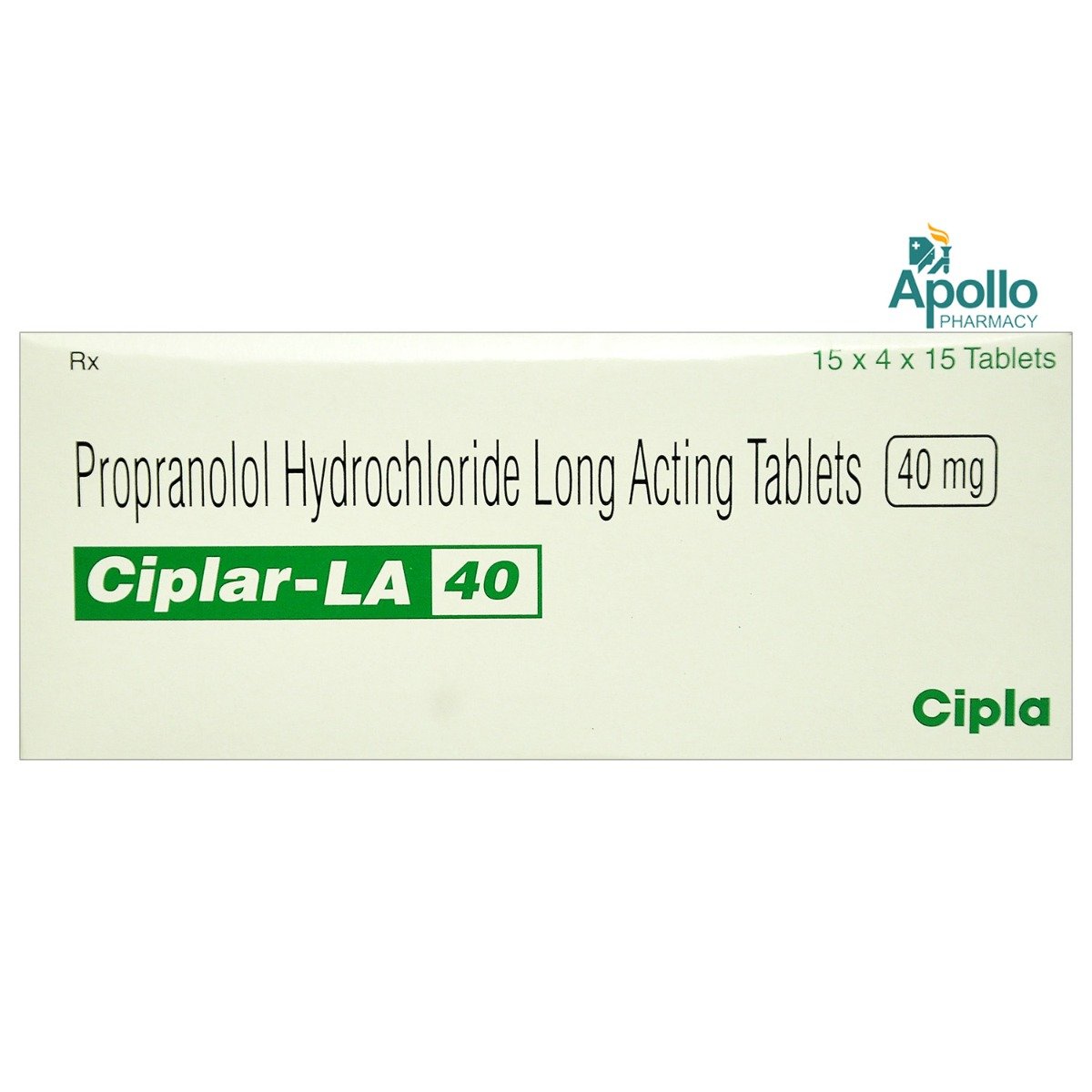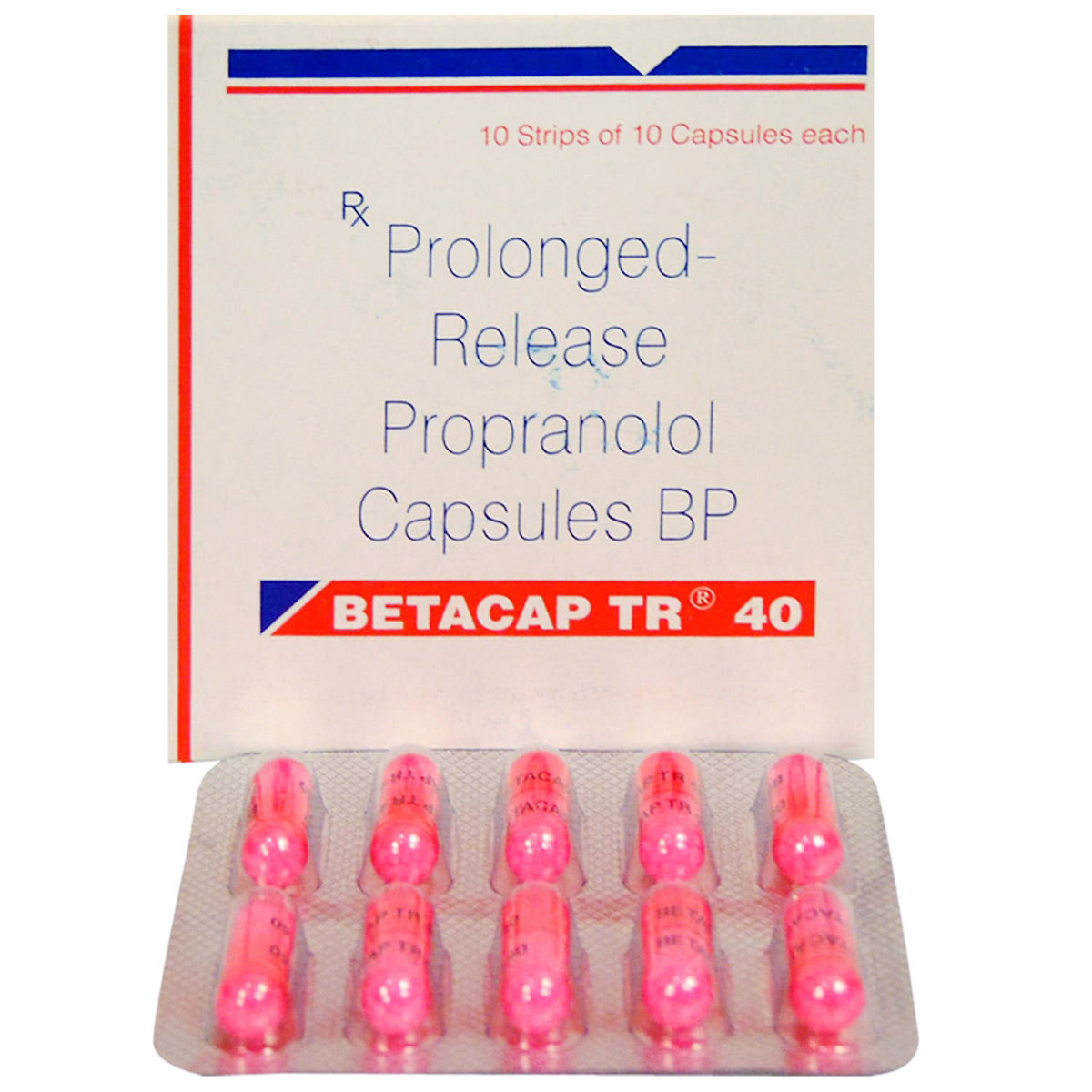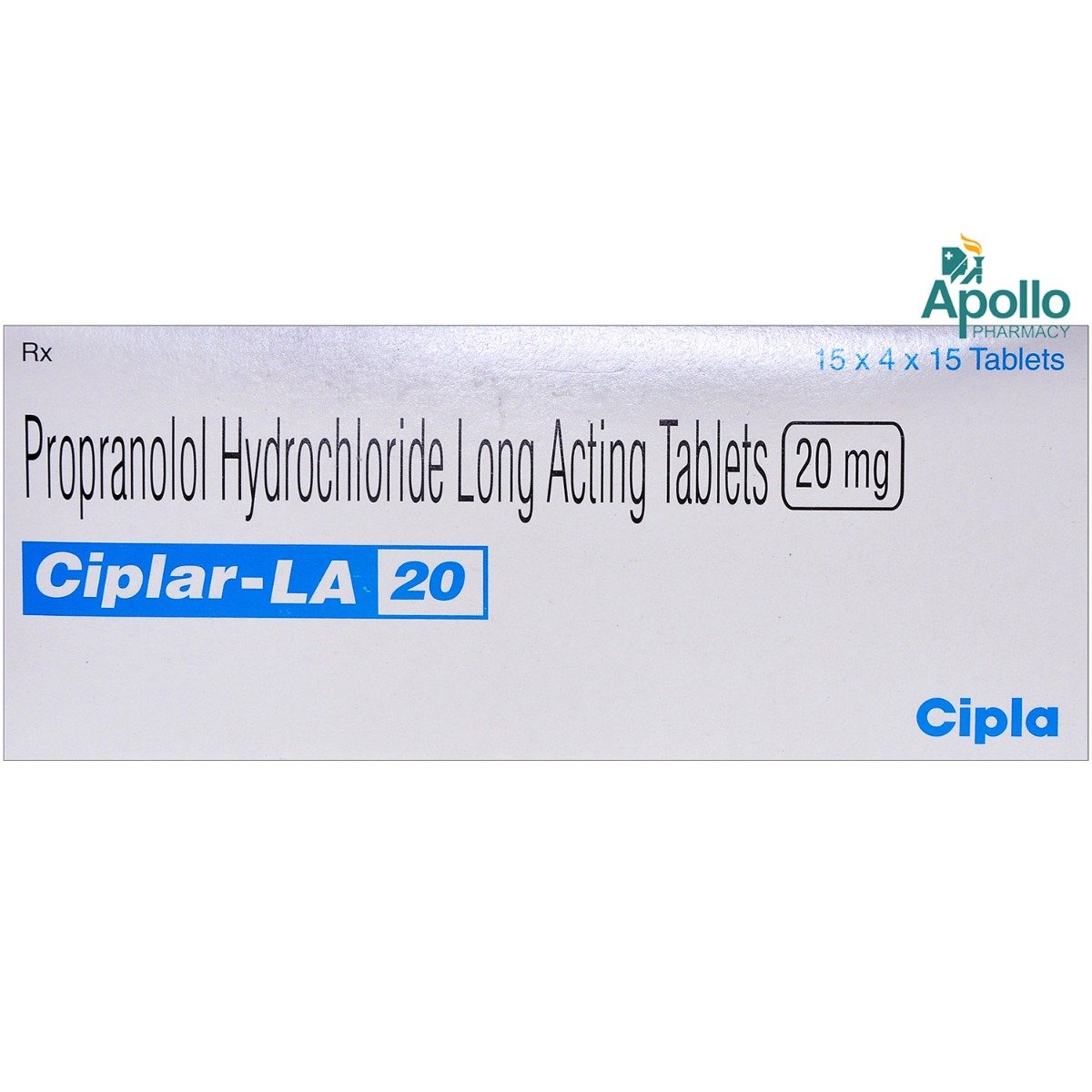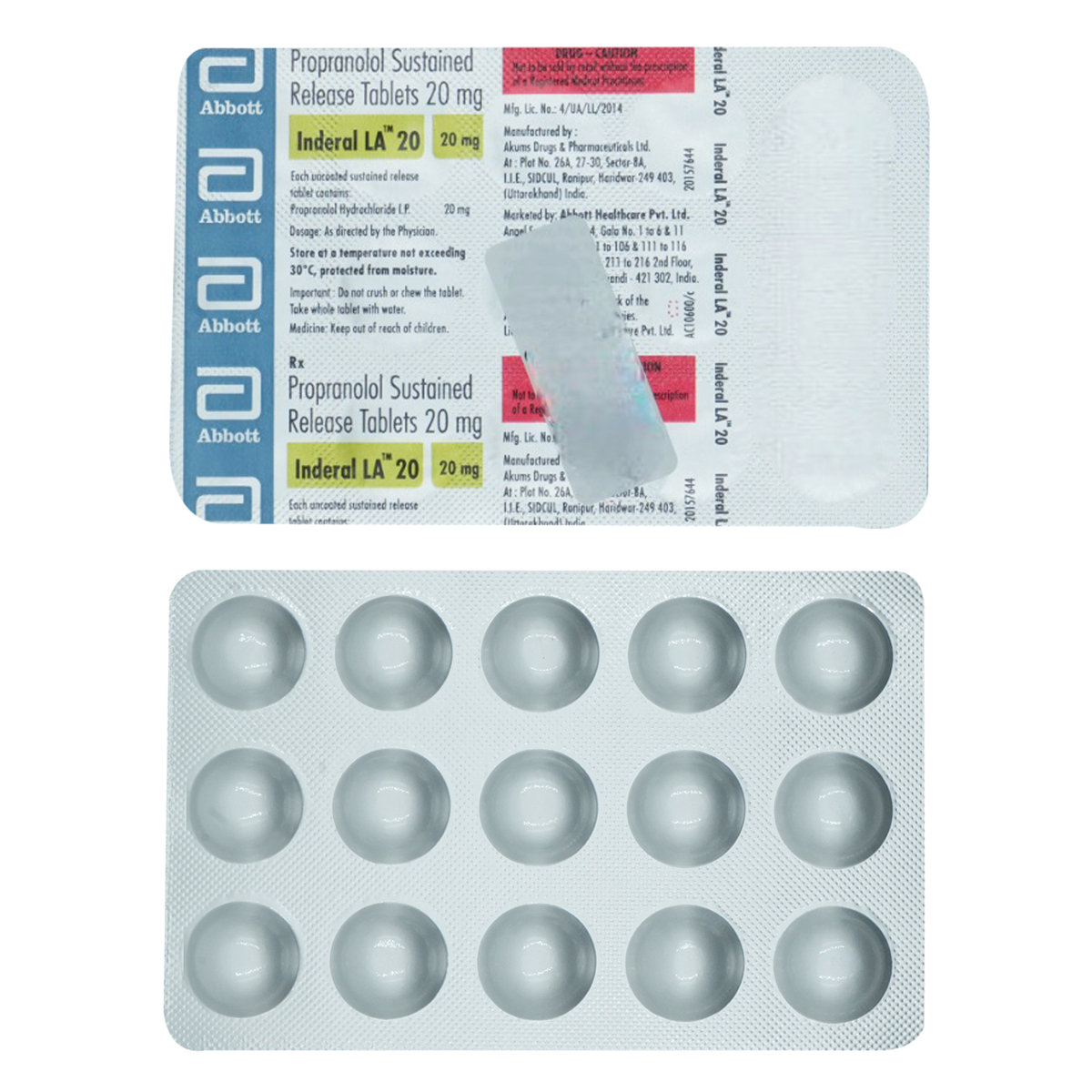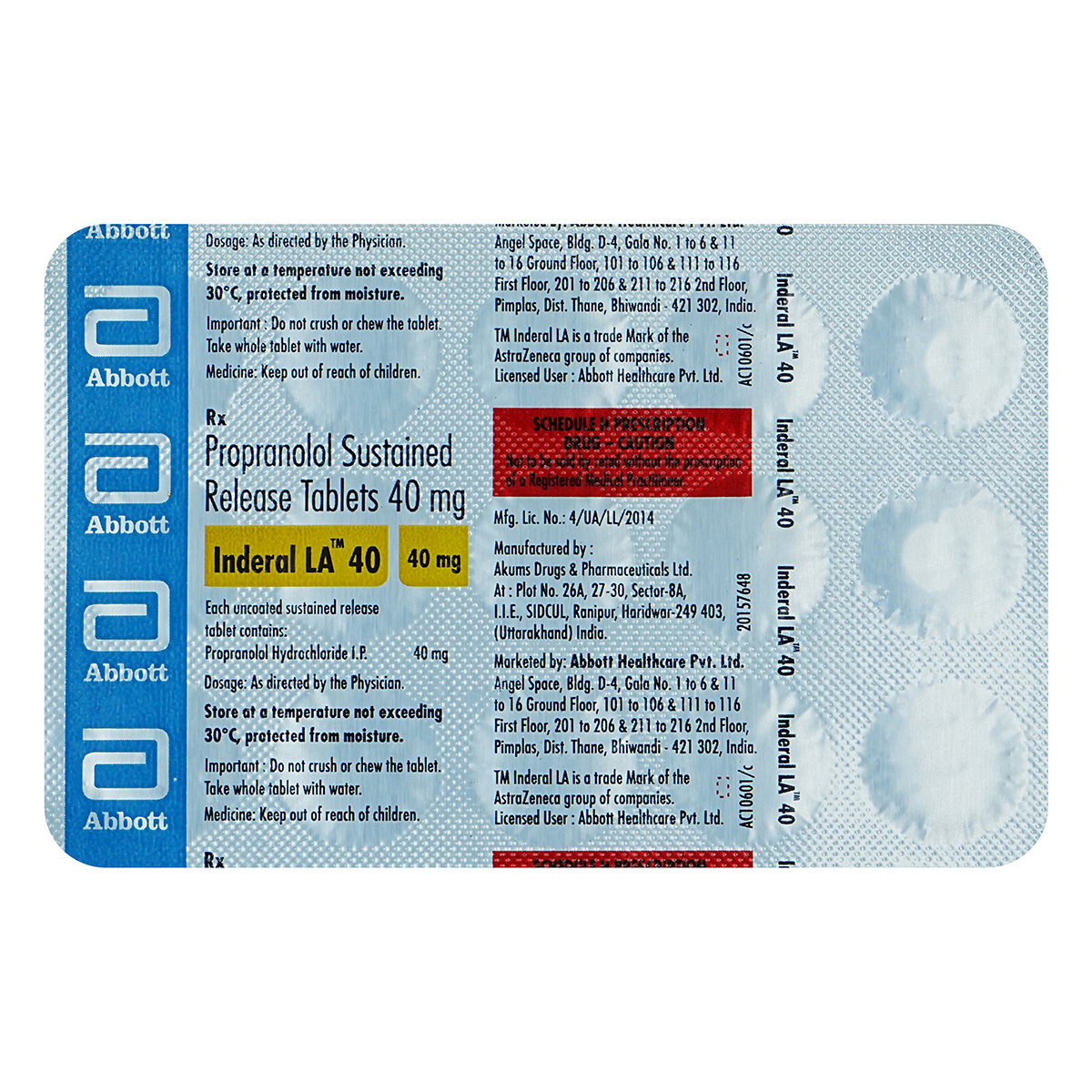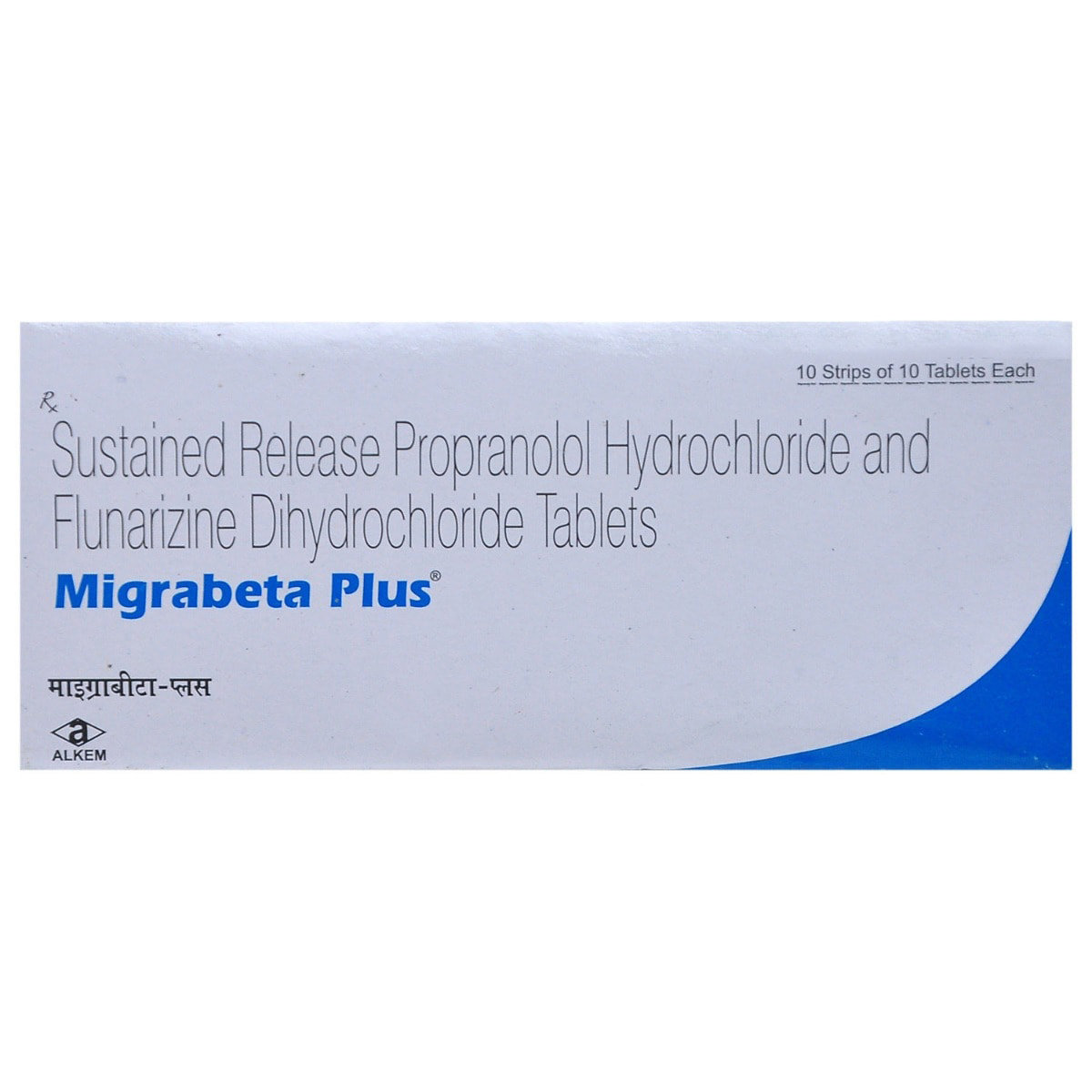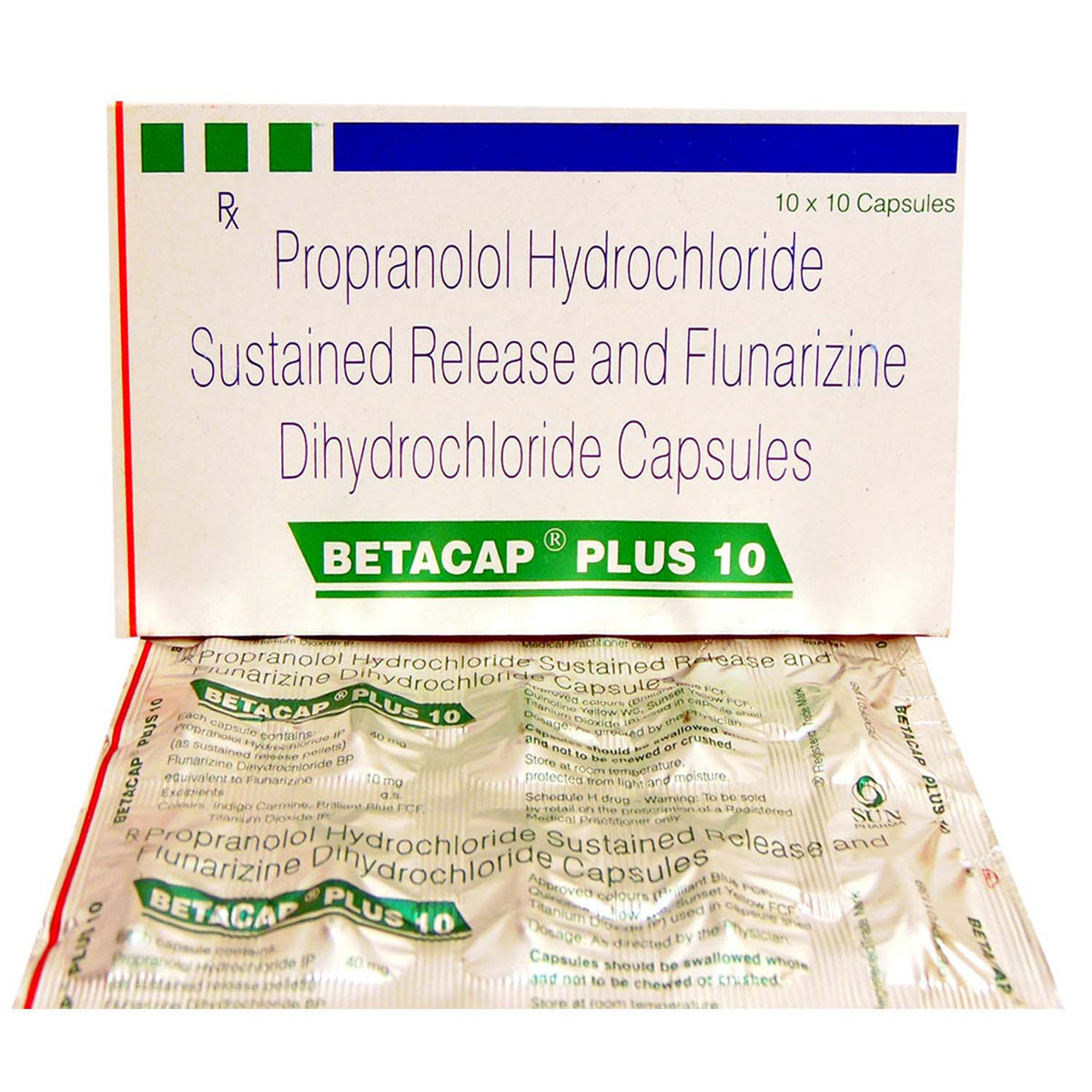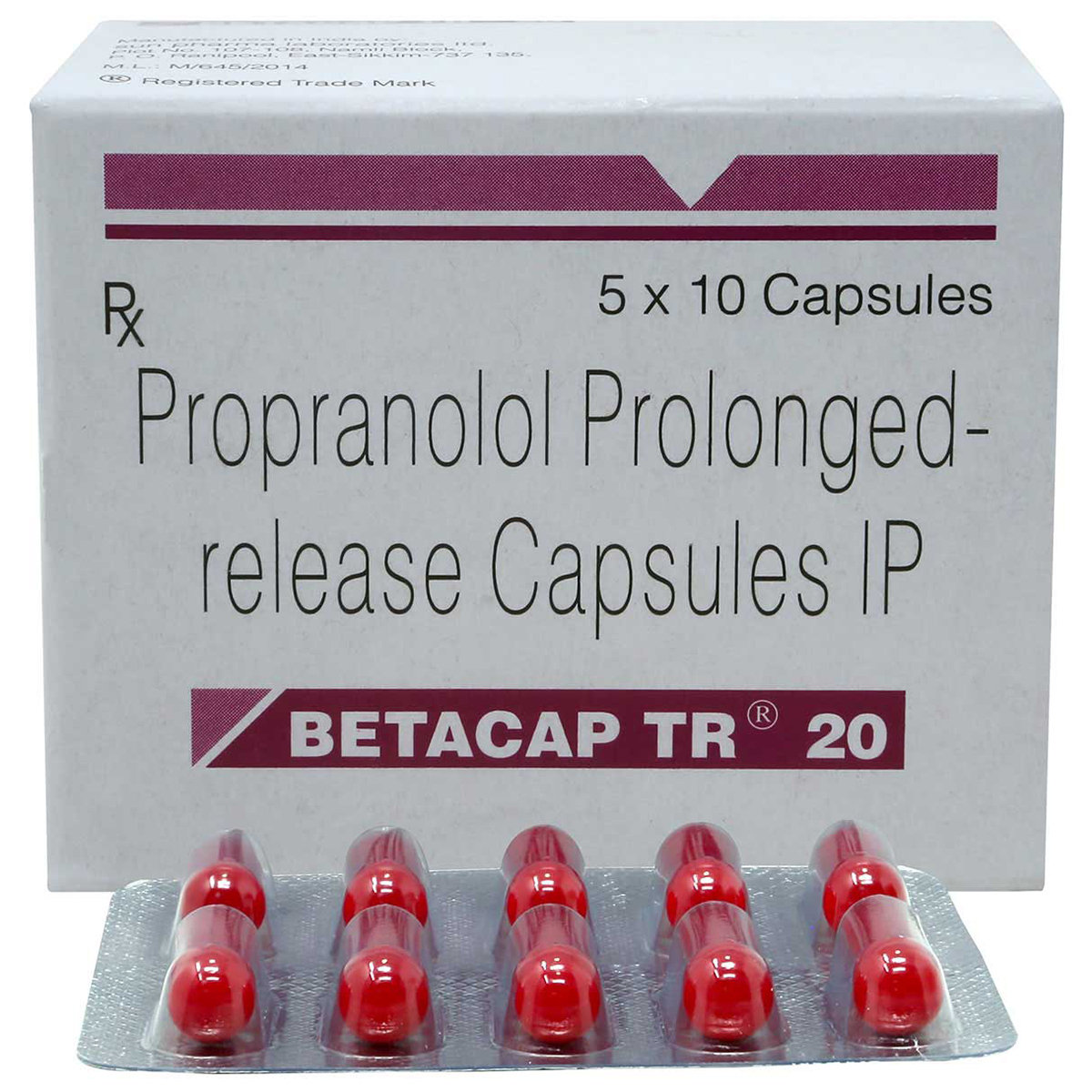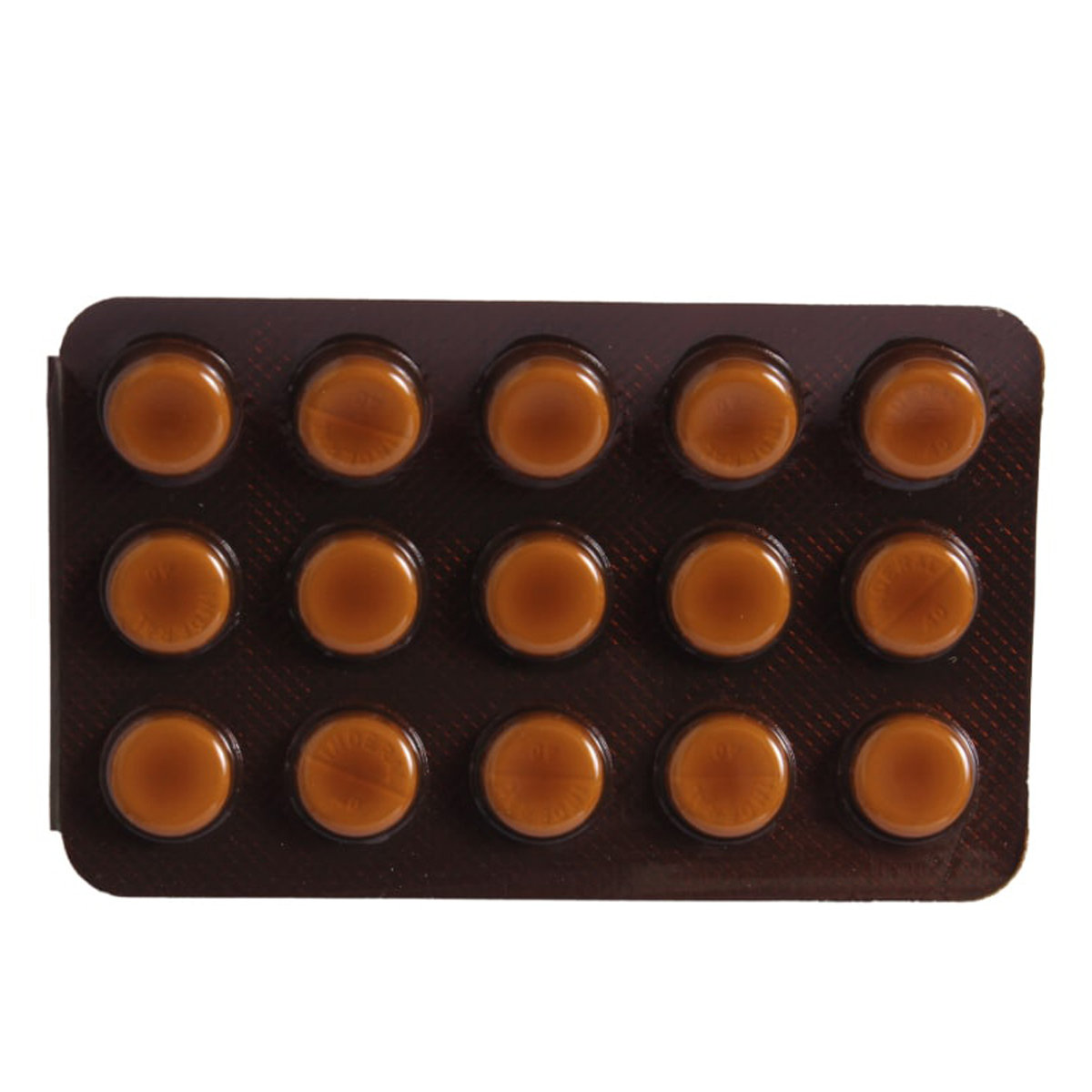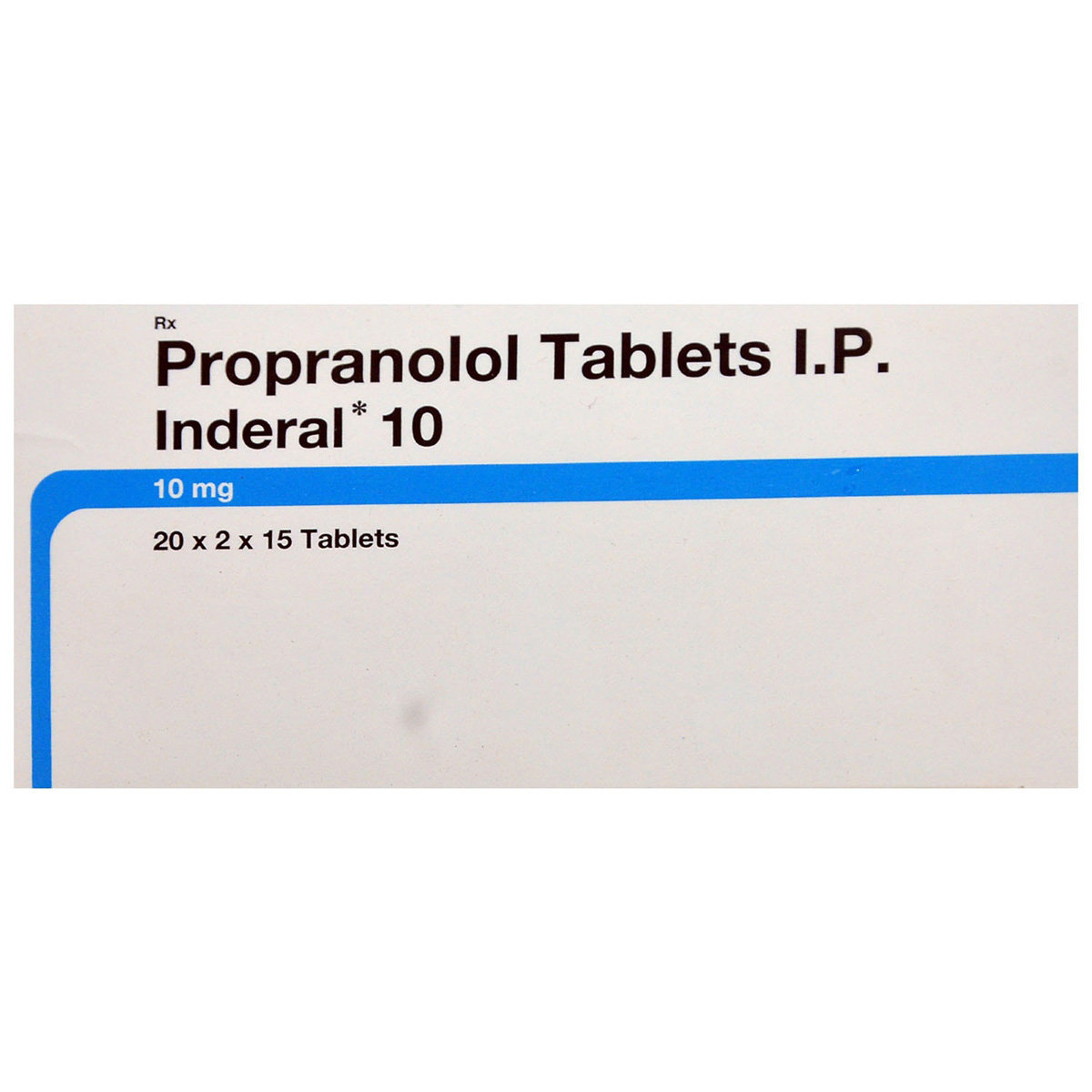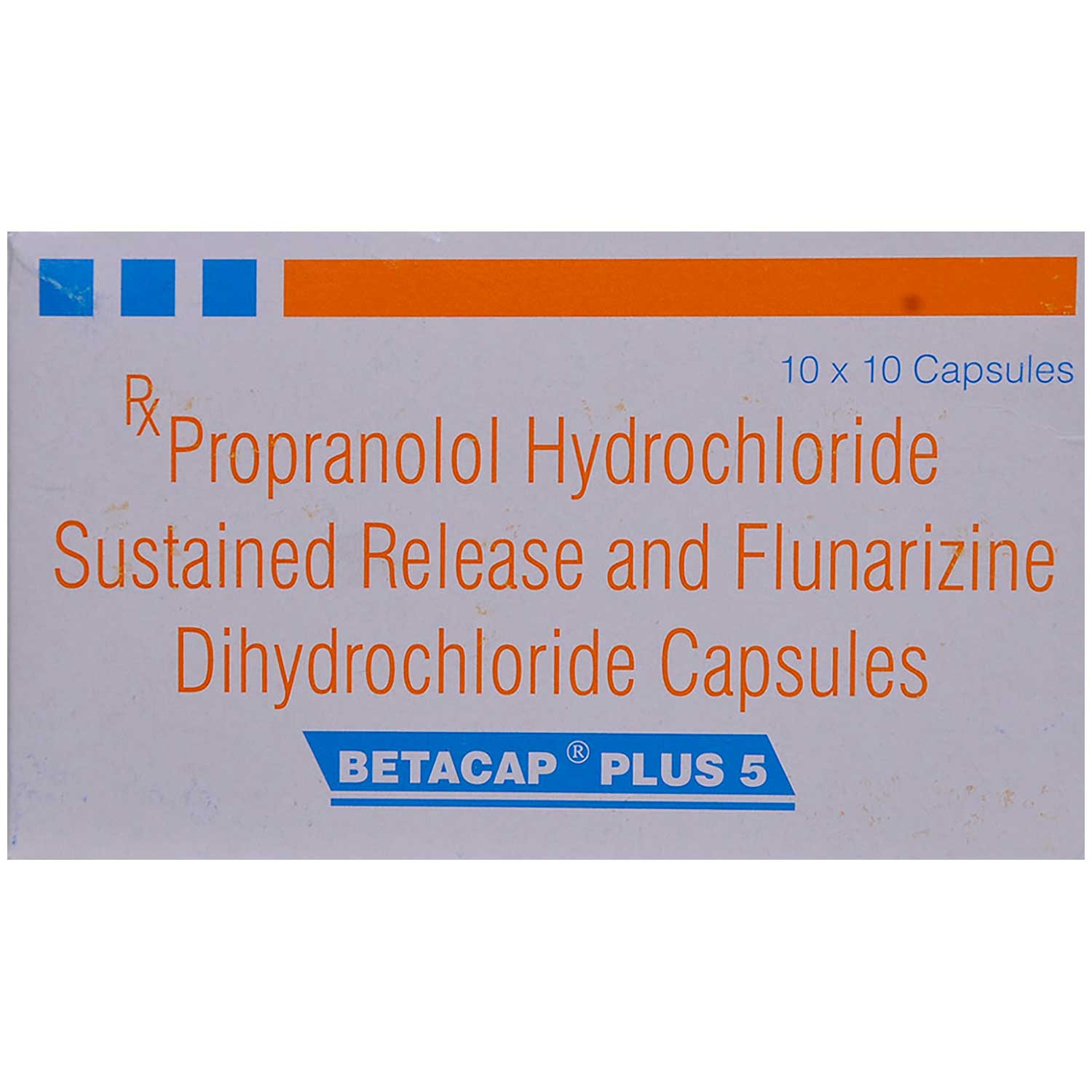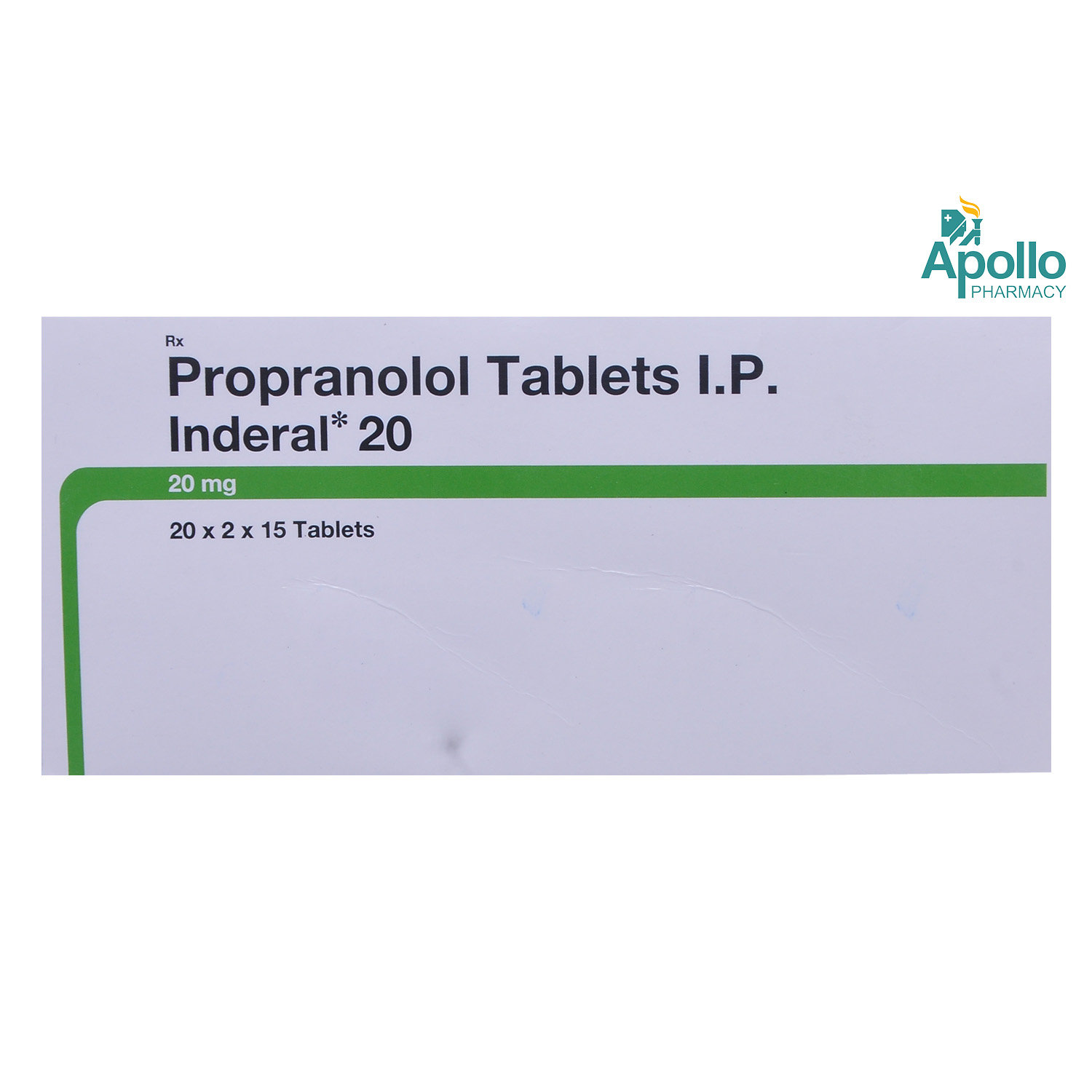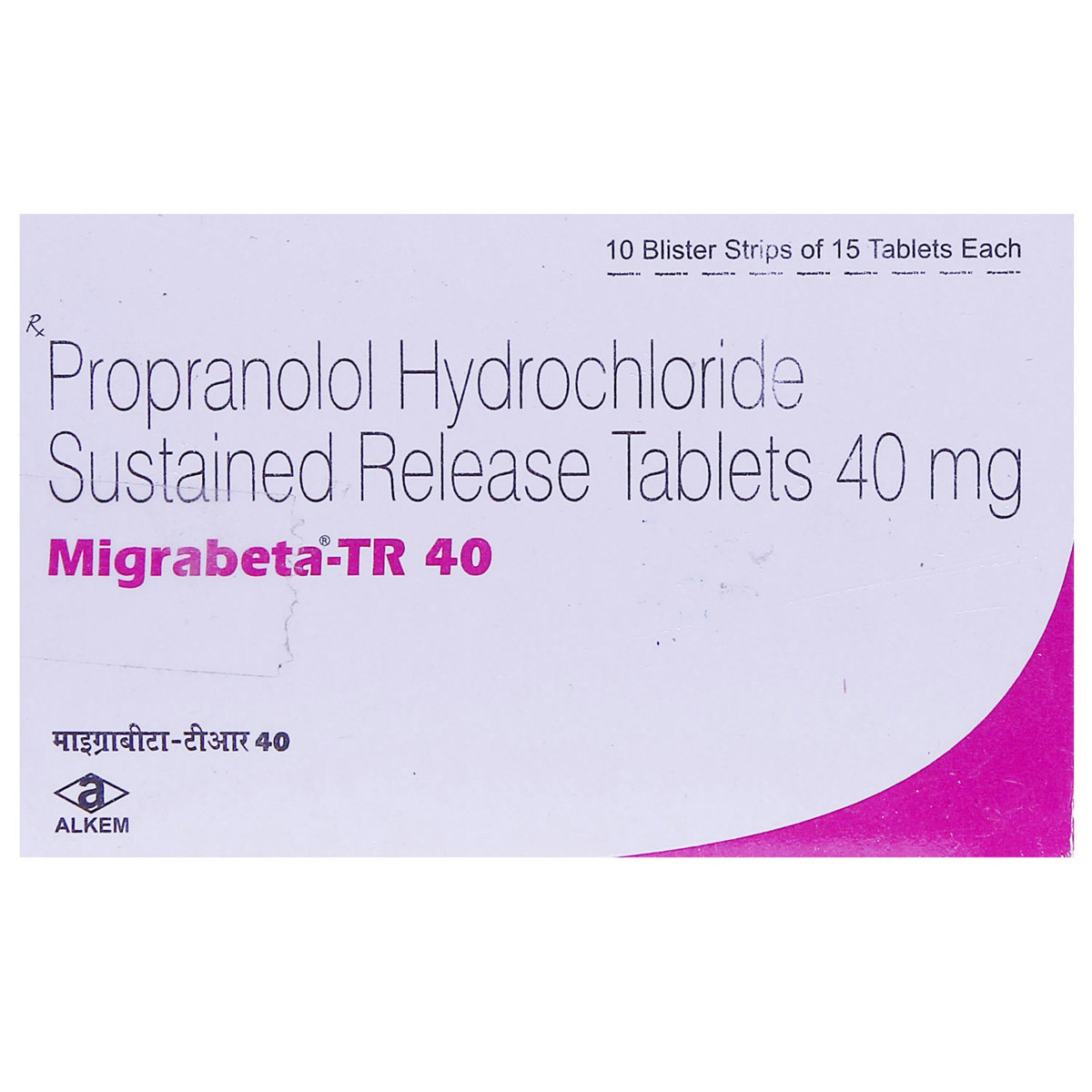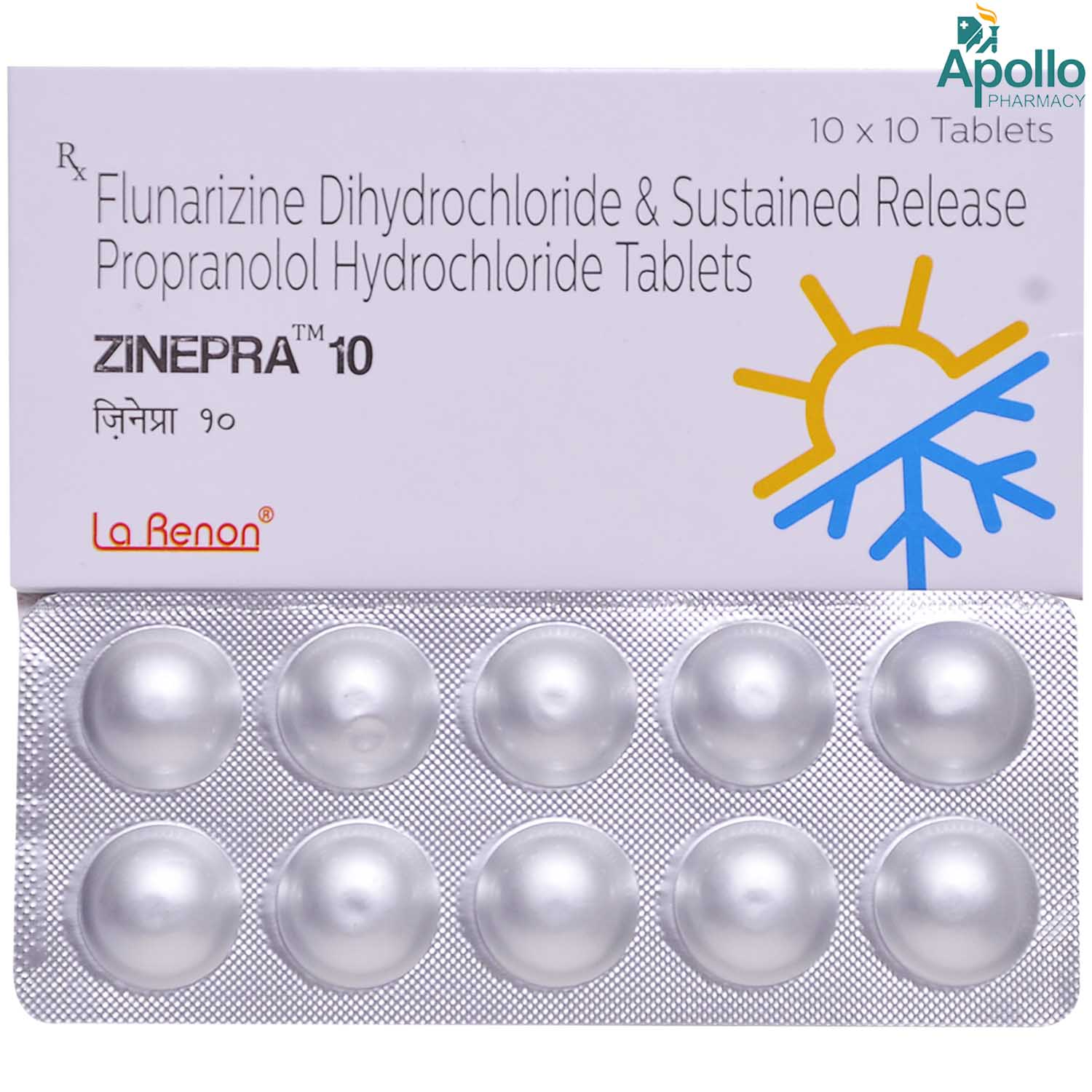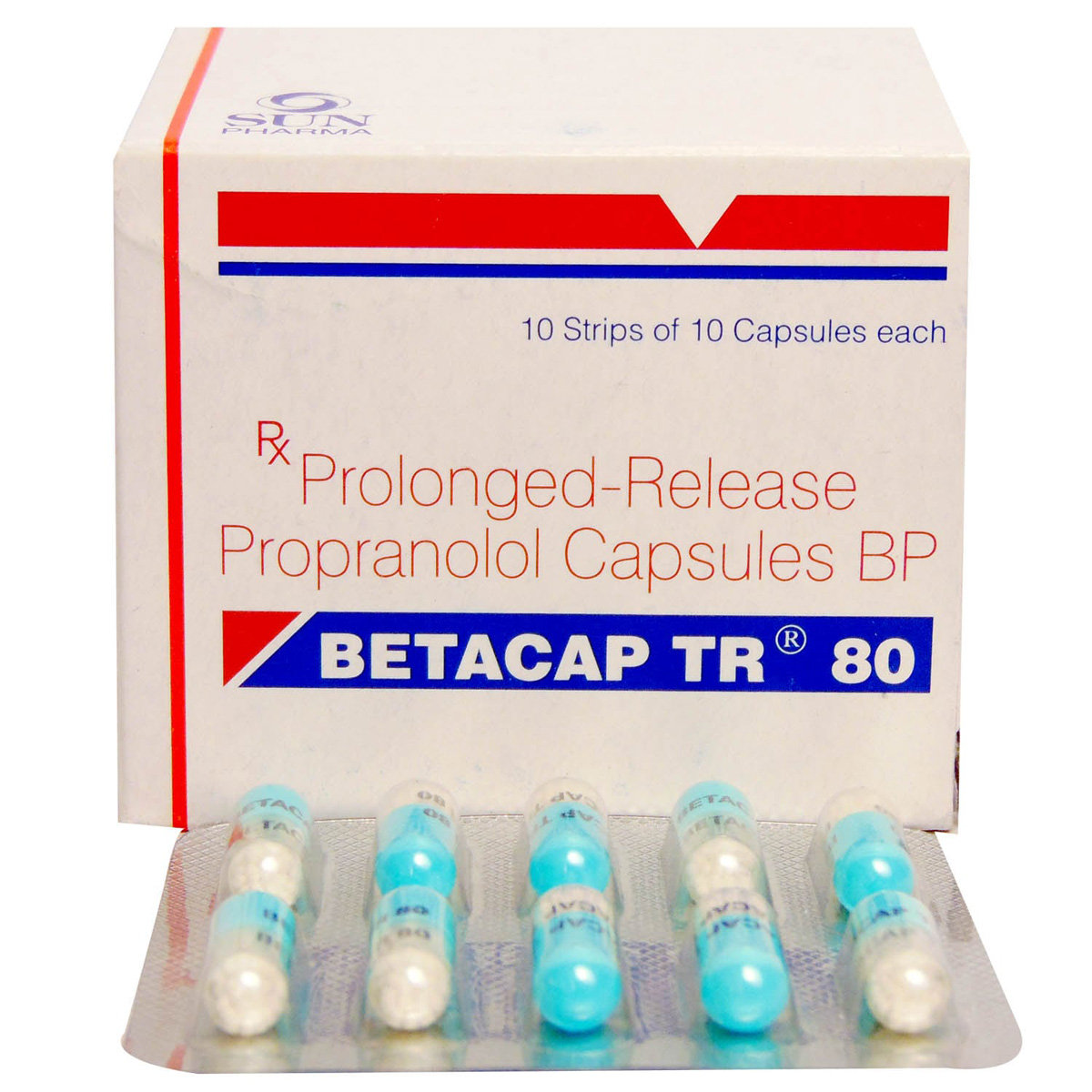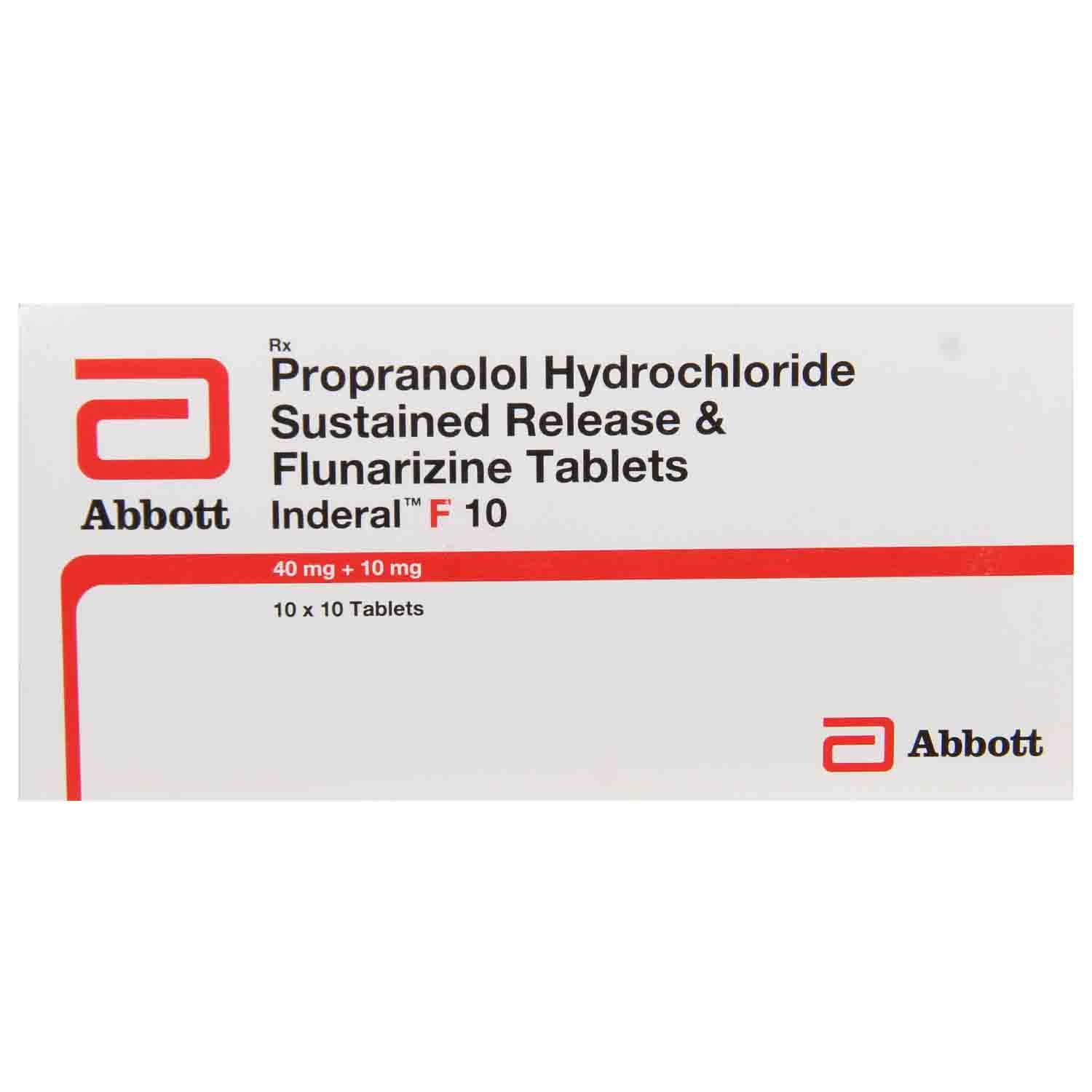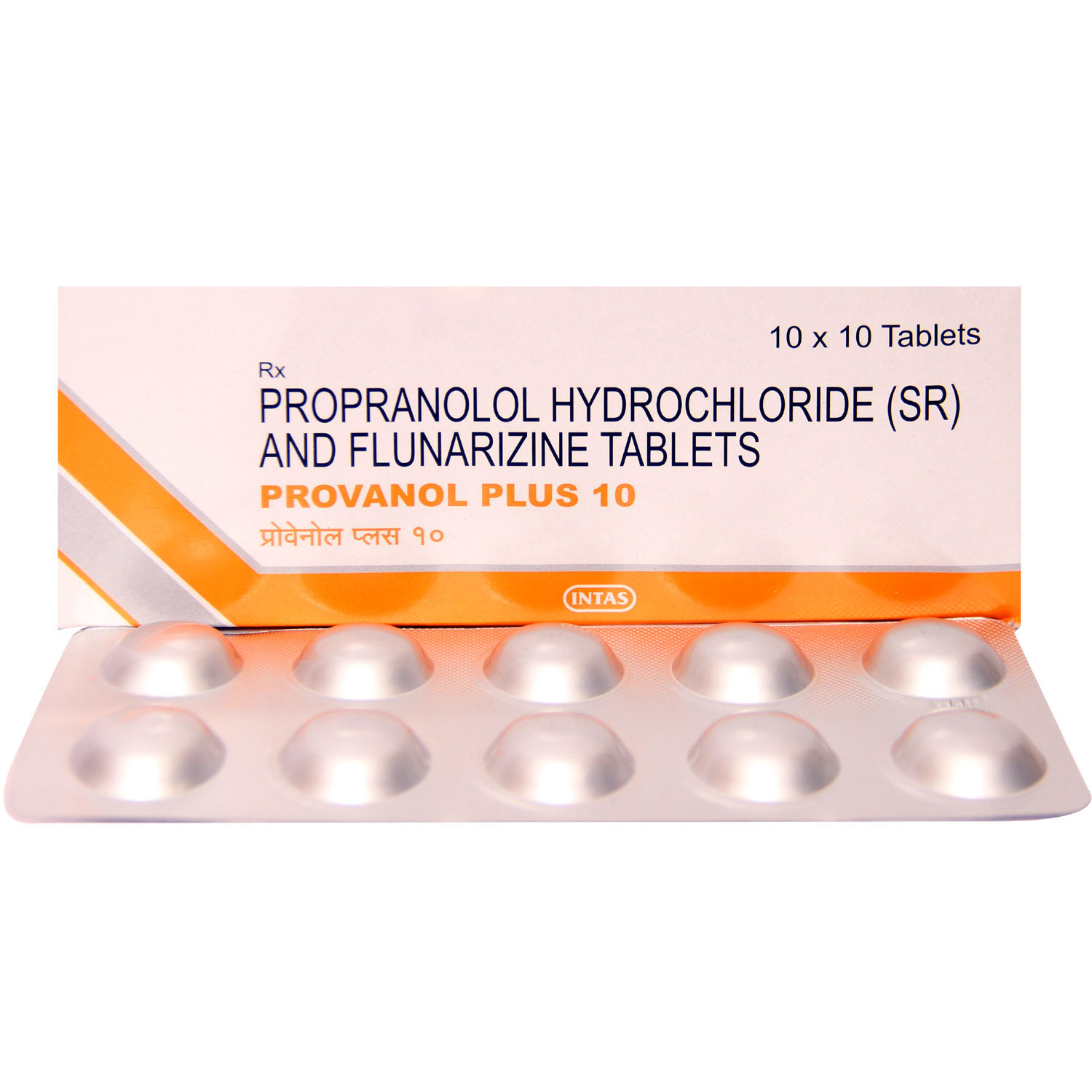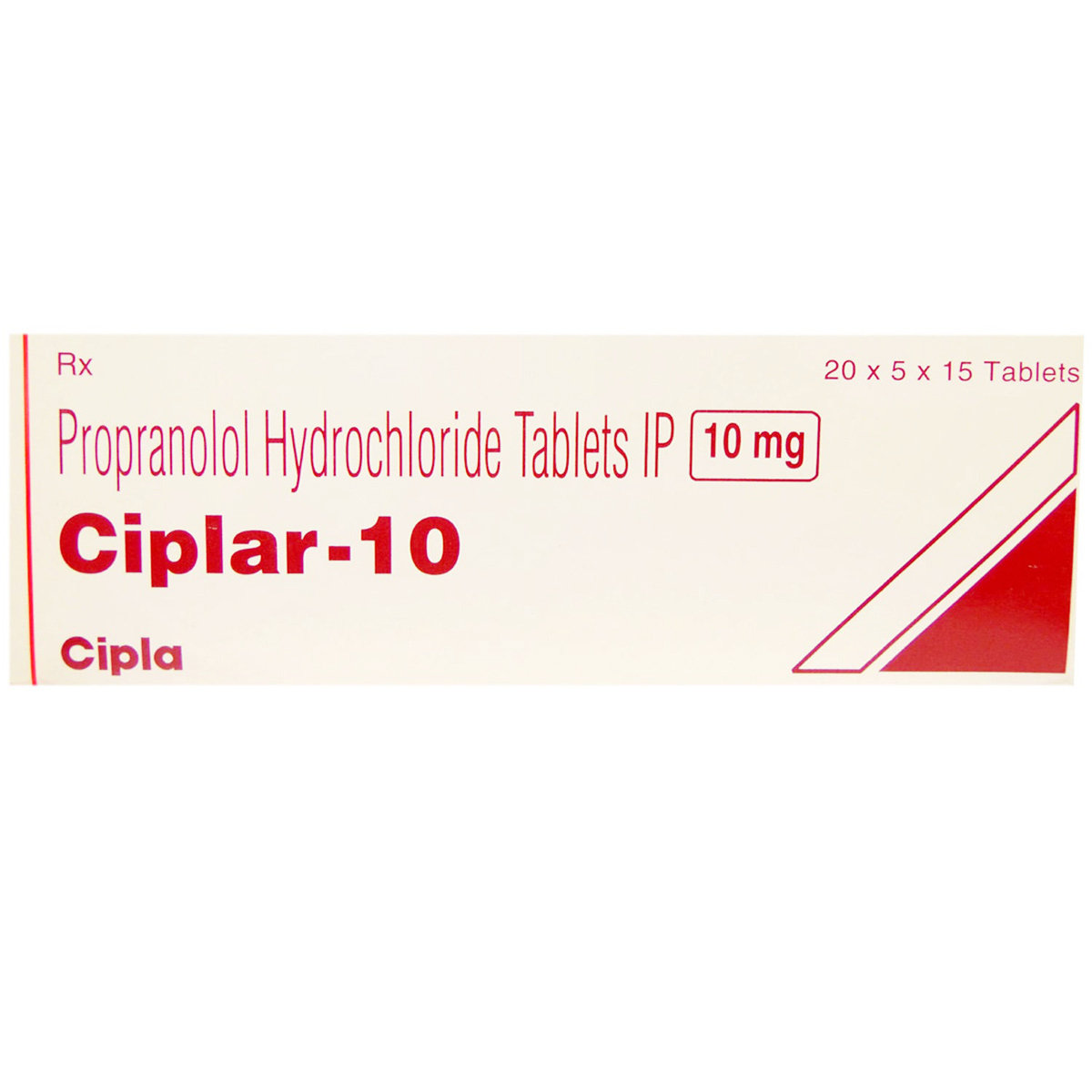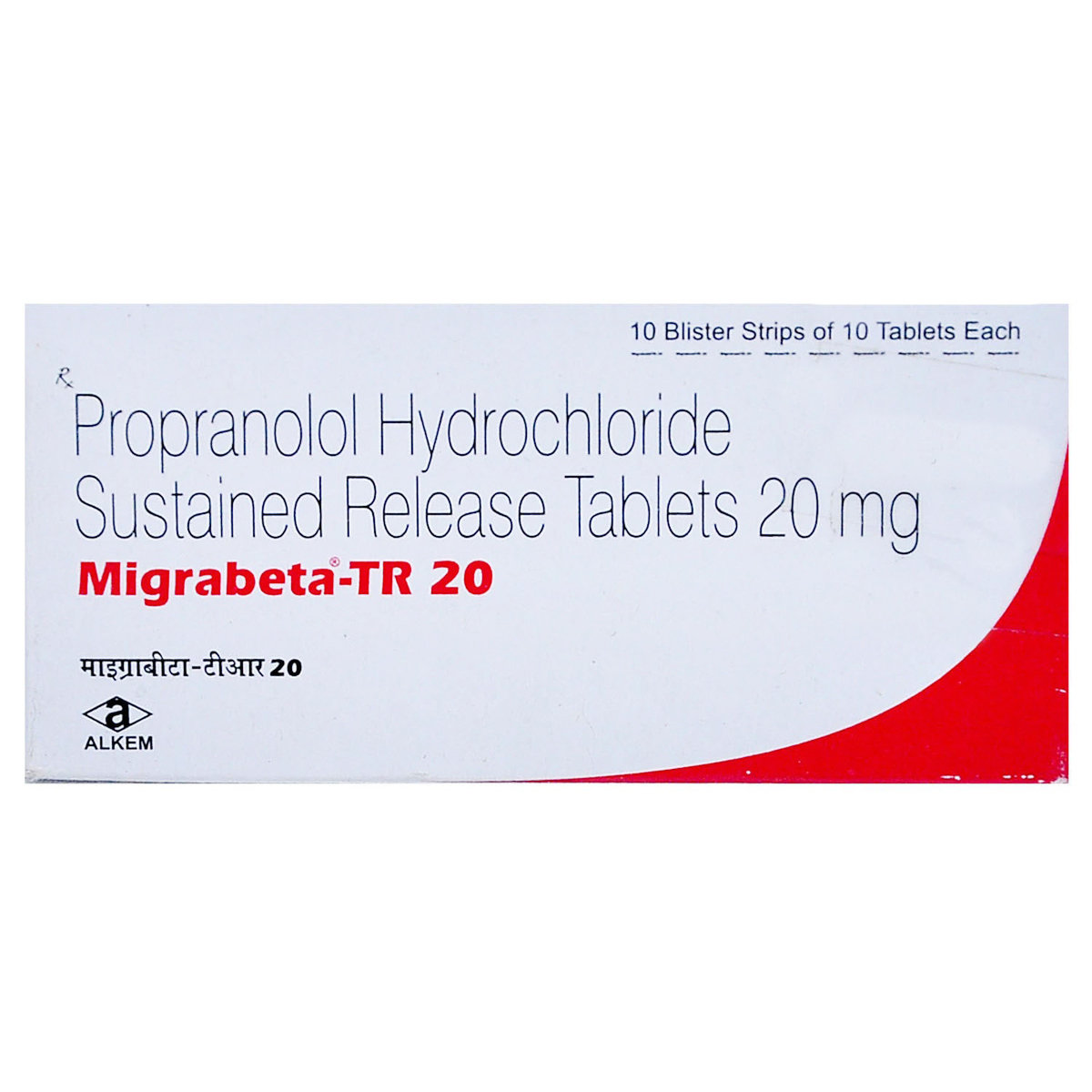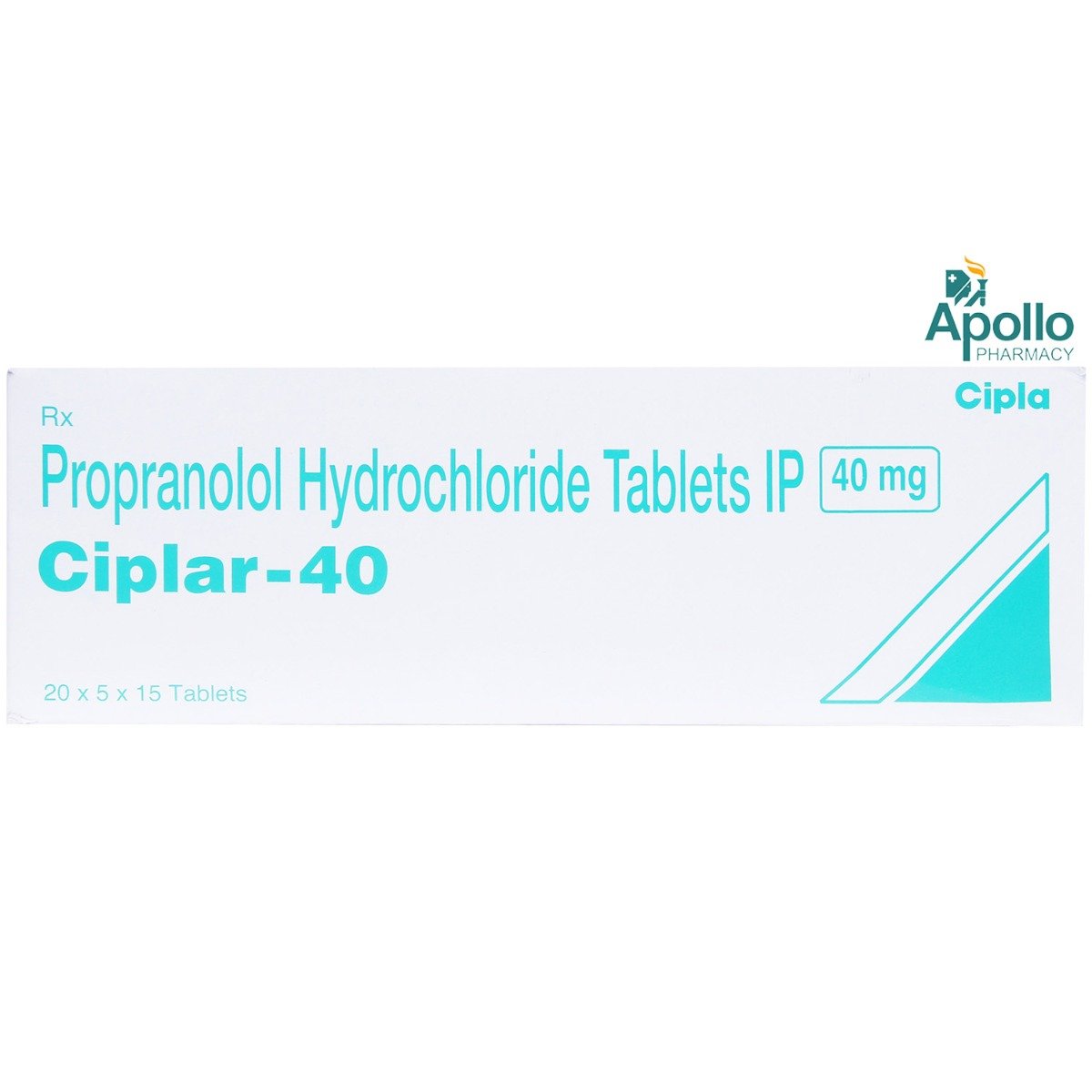Propranolol
About Propranolol
Propranolol is used alone or together with other medicines to treat high blood pressure (hypertension), chest pain (angina), irregular heartbeat(arrhythmia), migraines, and tremors.
Propranolol contains propranolol, which helps relax your blood vessels by blocking certain natural chemicals in the body, which lowers blood pressure and reduces the risk of stroke, heart attack, heart problems, or kidney damage.
In certain instances, Propranolol may result in typical adverse effects like fatigue or lightheadedness, cold hands or feet, difficulty falling asleep, or even weird dreams. These are typically minor side effects that resolve on their own. However, if they persist or cause you significant discomfort, make sure to speak with your physician.
Take Propranolol orally, with or without food, or as directed by your doctor. Swallow the whole with a glass of water; do not crush, chew, or break it. It is advised not to take more than the recommended dose of Propranolol.
Do not stop taking Propranolol without talking to your doctor. Stopping it suddenly can cause changes in your heart rhythm and blood pressure. This may lead to chest pain or even a heart attack. Also, avoid taking Propranolol if you have a very slow heartbeat, asthma, a serious heart condition (like sick sinus syndrome), or a heart blockage. It should also not be given to children who weigh less than 4.5 pounds or are under 12 years of age.
Uses of Propranolol
• Hypertension Management: Propranolol is primarily prescribed to lower high blood pressure, reducing the risk of heart-related complications.
• Angina Pectoris Treatment: Propranolol helps alleviate chest pain (angina) caused by inadequate blood flow to the heart.
• Heart Rhythm Regulation: Propranolol is effective in managing certain irregular heartbeats, aiding in the stabilization of heart rhythm.
• Migraine Prevention: Propranolol is often used to prevent migraines, decreasing the frequency and severity of attacks.
• Anxiety and Performance Anxiety Relief: Propranolol is utilized to manage anxiety and can effectively reduce physical symptoms of performance anxiety, such as a rapid heart rate.
Medicinal Benefits
- Propranolol works by blocking two types of receptors in the body: beta-1 and beta-2 receptors.
- Propranolol blocks beta-1 receptors in the heart, which slows down the heartbeat and makes the heart pump with less force. This helps lower blood pressure and reduce chest pain associated with heart problems (angina).
- Propranolol can also improve a person’s ability to exercise without discomfort if they have angina.
- By blocking beta-2 receptors in the lungs and blood vessels, Propranolol helps lower blood pressure even more. This can reduce the risk of serious health problems like stroke, heart attack, heart failure, and kidney damage.
- Propranolol is often used along with thiazide diuretics (water pills) and other medications to manage high blood pressure more effectively.
- Propranolol also helps to reduce symptoms of essential tremor (involuntary shaking) and can prevent migraine headaches.
- Propranolol can be used to treat symptoms of an overactive thyroid (thyrotoxicosis) and is sometimes given together with thyroid medications.
Directions for Use
- Propranolol can be taken with or without food as advised by your doctor.
- Follow your doctor's instructions on the dosage and timing of this medication.
- Swallow Propranolol as a whole with a glass of water.
- Do not crush, break, or chew it.
Storage
Side Effects of Propranolol
- Headaches
- Feeling tired, dizzy, or weak
- Cold fingers or toes
- Feeling or being sick (nausea or vomiting)
- Diarrhoea
- Stomach pain
Medicines Containing this Salt
View AllDrug Warnings
- Propranolol should not be used if you have cardiogenic shock (where the heart cannot pump enough blood to the body), in people with heart failure, or if you have a very slow heartbeat, asthma, a serious heart condition like sick sinus syndrome, or heart block.
- Do not stop taking Propranolol suddenly without talking to your doctor, as it may lead to chest pain, heart rhythm changes, or a heart attack. Your doctor will reduce your dose of Propranolol gradually to prevent these effects.
- Propranolol should not be given to children who weigh less than 4.5 pounds or are under 12 years old.
- Before starting Propranolol, tell your doctor if you have any muscle disorders like myasthenia gravis or rhabdomyolysis; breathing problems such as COPD, bronchitis, or emphysema; diabetes; low blood pressure; depression; or a history of heart failure, liver or kidney disease, a thyroid disorder, or an adrenal gland tumor like pheochromocytoma.
- Propranolol can hide signs of low blood sugar, so careful monitoring is important for diabetic patients.
- Propranolol may worsen circulation problems such as Raynaud’s syndrome, so inform your doctor if you have circulation problems.
- If you are taking blood thinners like warfarin, your doctor may ask you to regularly check your prothrombin time to avoid bleeding risks.
- If you are pregnant, planning to become pregnant, or breastfeeding, tell your doctor before taking Propranolol, as it may affect your baby.
Drug Interactions
Drug-Drug Interactions: Propranolol may interact with other beta-blockers (acebutolol, atenolol, bisoprolol, carteolol, esmolol, metoprolol, nadolol, nebivolol or sotalol) causing a dangerous drop in the heart rate. Besides this, Propranolol should not be used with other blood pressure-related medicines (lisinopril, enalapril, diltiazem, prazosin, terazosin, doxazosin), asthma medications (theophylline), or any other painkillers. If you are using these medicines tell your doctor before taking Propranolol.
Drug-Food Interactions: Propranolol interacts severely with grapefruit and protein-rich foods. Additionally, using Propranolol alongside Ayurvedic, homeopathic, Unani, herbal supplements, or any over-the-counter (OTC) products may reduce its effectiveness. It is advisable to maintain at least a 2-hour gap between taking Propranolol and these products.
Drug-Disease Interactions: Propranolol should not be administered to individuals with diabetes, thyroid disease, asthma, cardiogenic shock (a condition where the heart fails to pump adequate blood throughout the body), heart valve problems (stenosis), low blood pressure (hypotension), coronary heart disease, liver disease, or heart failure. Using Propranolol together with ayurvedic, homeopathic, unani, herbal supplements or any other OTC items may decrease the effects of Propranolol. Hence, it is better to maintain at least 2 2-hour gap between the administration of Propranolol and these products.
Drug-Drug Interactions Checker List:
Safety Advice

Alcohol
unsafeYou are recommended not to consume alcohol along with Propranolol to avoid unpleasant side-effect of low blood pressure causing dizziness or drowsiness.

Pregnancy
consult your doctorPropranolol is not recommended during pregnancy unless your doctor considers it essential. Your doctor will weigh the benefits and any potential risks before prescribing it to you.

Breast Feeding
consult your doctorSmall amounts of Propranolol passess into the breast milk. However which is not enough to cause any problems to your baby. But, still it is advisable to contact your doctor before breastfeeding your baby.

Driving
cautionPropranolol is unlikely to affect your ability to drive or to operate machinery. However, some people may occasionally feel dizzy or tired when taking Propranolol. so, drive only if you are alert.

Liver
cautionPropranolol to be taken with caution, especially if you have a history of liver diseases/conditions.

Kidney
cautionPropranolol to be taken with caution, especially if you have a history of kidney diseases/conditions.

Children
unsafeThe safety and efficacy of Propranolol in children have not been established. Propranolol is not recommended in children unless prescribed by a child specialist.
Habit Forming
Diet & Lifestyle Advise
- Keep your weight under control with a BMI of 19.5-24.9.
- Regular physical activity or exercise for at least 150 minutes per week, or about 30 minutes most days of the week. Doing this can help lower your raised blood pressure by about 5 mmHg.
- Option for a diet rich in whole grains, fruits, veggies, and low-fat dairy products.
- Limit sodium chloride (table salt) intake in your daily diet to 2300 mg per day, or less than 1500 mg, which is ideal for most adults.
- If you are taking alcohol, then only one serving for women and two for men is advisable.
- Quitting smoking is the best strategy to lower the risk of heart disease.
- Avoid chronic stress, as it can raise your blood pressure. Try to enjoy and spend time with your loved ones to cope with stress and practice mindfulness techniques.
- Monitor your blood pressure daily, and if there is too much fluctuation, immediately contact your doctor.
- Including heart-healthy omega-3 fatty acid-containing food drinks in your daily diet. You can also use low-fat cooking oils like olive oil, soybean oil, canola oil, and coconut oil to help lower your elevated blood pressure.
Special Advise
- Propranolol may also make it harder to control your blood sugar. Check your blood sugar regularly as directed and share the results with your doctor.
- Tell a doctor straight away if you have shortness of breath with a cough that gets worse when you exercise (like walking upstairs), swollen ankles or legs, chest pain, or an irregular heartbeat; these are signs of heart problems.
Patients Concern
Disease/Condition Glossary
Blood pressure: Blood pressure is the force that the heart uses to pump blood around the body, and when it stays too high (a condition called hypertension), it can strain the heart, harden blood vessels, reduce blood flow, and lead to serious problems like chest pain, heart attack, stroke, or kidney failure. A healthy reading of blood pressure is usually between 90/60 mmHg and 120/80 mmHg, where the top number (systolic) shows the pressure when the heart beats, and the bottom number (diastolic) shows the pressure when the heart rests.
FAQs
Propranolol is used to treat high blood pressure (hypertension), heart-related chest pain (angina), heart rhythm disorder (arrhythmia) and prevent symptoms of migraine headache and tremors (fits).
Propranolol plays a vital role in relaxing our blood vessels by blocking the action of certain natural substances in your body. This lowers your blood pressure and helps reduce your risk of a stroke, a heart attack, other heart problems, or kidney problems in the future.
It is advised to continue your medicine even after your blood pressure is under control or becomes normal as blood pressure can shot up any time. If you have any discomfort, please consult your doctor immediately.
If you forget to take Propranolol at any time, take it as soon as you remember, then continue to take it at the usual times. Do not take a double dose to make up for a forgotten dose.
Yes, drowsiness is a common side effect of propranolol. It's often more noticeable when you first start taking the medication. As your body adjusts, this drowsiness usually subsides. If the drowsiness is significantly affecting your daily life or causing you concern, it's important to discuss it with your doctor. They may be able to adjust your dosage or recommend other strategies to help manage this side effect.
If you are trying to conceive or are already pregnant, speak with your doctor about the benefits and risks of taking propranolol. Propranolol is regarded to be safe during pregnancy, although it may impact your baby's growth later on.
No, it does not belong to diuretic class. Propranolol belongs to a group of medicines called beta blockers.
Propranolol normally begins functioning after a few hours. Propranolol may take up to a week to take action in people with heart disease or high blood pressure. You may not see any difference, but that does not mean it is not effective. It's critical to continue taking your medication unless your doctor advises.
Propranolol exposure is associated with an elevated risk of asthma hospitalization in vulnerable patients, which appears to vary depending on dose and duration of exposure.
If you forget to take your Propranolol, take it as soon as you remember unless it is almost time for your next dose. If it is almost time for your next dose, simply skip the missed dose and take your next dose at the regular time. Never take two doses at the same time, and never take an additional dose to compensate for a missed one.
If you stop taking propranolol suddenly, you may develop serious cardiac issues such as angina (chest pain), a heart attack, or an irregular heartbeat. Your doctor would most likely wish to gradually reduce your dose over a period of 1 to 2 weeks.
It's usually prescribed for high blood pressure and other heart problems, but it can also help with the physical symptoms of anxiety, like sweating and shaking. However, it should be used only if prescribed by the healthcare professional.
To get the most benefit from Propranolol, it's important to maintain a healthy lifestyle. Eat a balanced diet, exercise regularly, manage stress, and limit alcohol and smoking. By following these tips, you can help control your blood pressure and improve your overall health.
Propranolol is widely acknowledged to be an effective treatment for high blood pressure (hypertension).
Do not take more than the prescribed dose of Propranolol as it may cause overdose. The signs and symptoms of overdose may include slow heart rate, trembling, dizziness, seizures (fits) or difficulty breathing. If you suspect you have taken overdose or notice signs of overdose, please consult a doctor immediately.
Propranolol is not suitable for everyone. To make sure it's safe for you, tell your doctor before starting to take propranolol if you have any medical conditions or taking any medications.
Non-steroidal anti-inflammatory drugs (NSAIDs) may reduce the blood pressure-lowering effects of propranolol. If you take these medications together, your doctor should check your blood pressure. They may need to adjust your propranolol dose.
The common side-effects of Propranolol are dizzy or exhausted, cold hands or feet, difficulty sleeping, and nightmares. Most of these side effects fade away gradually over time without the need for medical intervention. However, consult your doctor if you experience these side effects frequently.
